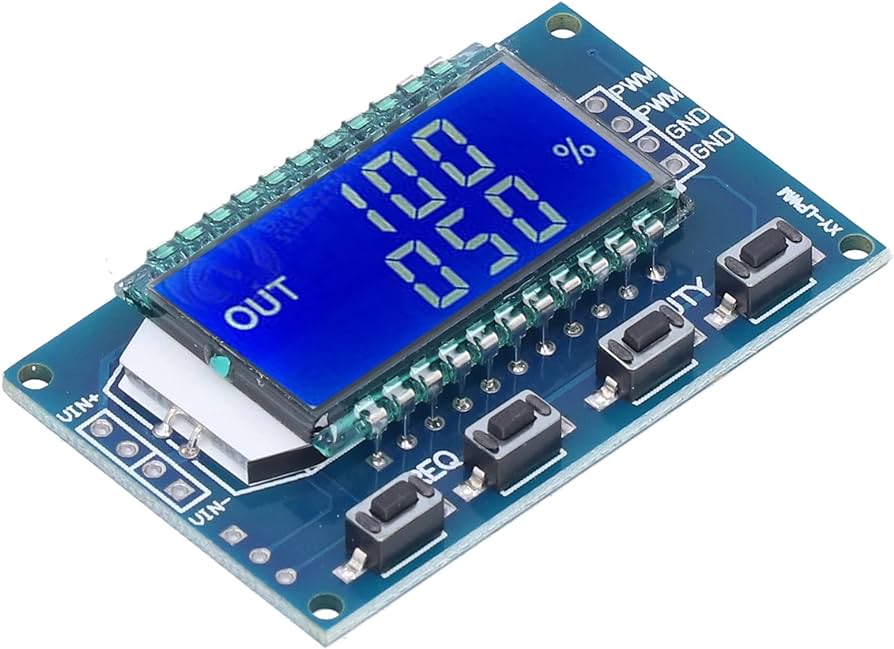Testing & Development
Pull requests are welcomed! Please visit GitHub if you would like to contribute to the project.
Pulse Testing

PWM modules like the above have come in handy whilst developing the counting logic.
Test Builds
ESPGeiger offers test builds specifically designed for ESP8266 and ESP32 microcontrollers. These builds enable the device to emulate various Geiger counter functionalities:
- Pulse Counter: Simulates the detection of radiation events by outputting a set number of pulses on the
TXPIN - GC10 Serial Counter: Emulates a GC10 Geiger counter, transmitting simulated radiation counts through the serial interface on the
TXPIN - MightOhm Serial Counter: Mimics a MightOhm Geiger counter, providing simulated radiation data in a MightOhm-compatible format via the serial port on the
TXPIN
Simulated values follow a Poisson distribution, mimicking the random nature of real radioactive decay.
By default the Test output cycles through several ranges of reading, switch each 5 minute period:
- 0.5 CPS / 30 CPM
- 1 CPS / 60 CPM
- 1.66 CPS / 100 CPM
- 2 CPS / 120 CPM
A build option is available to count the number of CPM sent on the local device, note that if this option is enabled and the RXPIN and TXPIN of the same device are connected together, counted values will be doubled.
Emulation and Communication
In these test build modes, you can connect the TXPIN (transmit pin) of one ESPGeiger device to the RXPIN (receive pin) of another ESPGeiger device, either the same unit or a different one. This setup allows you to create a closed-loop testing environment, mimicking real-world Geiger counter communication scenarios.
Note: No values are submitted to public services with Test builds.
 ESPGeiger
ESPGeiger